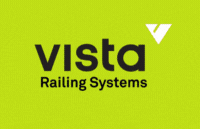By HR and health & safety consultancy Peninsula Canada
There’s no doubt that the ongoing bilateral tariff escalation between the U.S. and Canada will be damaging for Canada’s economy and workforce. Reports suggest that Canada’s GDP could reduce by as much as 3.25 percent, with industries like automotive, energy, and manufacturing being the worst affected.
In the employment sector, this means 1.5 million jobs could be at risk across various sectors, with Ontario’s automotive industry alone potentially losing 500,000 positions.
Kiljon Shukullari, HR advisory manager at Peninsula, says, “U.S. tariffs put Canada’s automotive, energy, and agricultural sectors at risk, jeopardizing jobs and creating economic instability. The auto industry’s integrated supply chains could crumble, while Alberta’s oil exports may experience sharp declines, costing billions annually.
“Agriculture and retail sectors will likely also suffer due to reduced consumer spending. For small and medium-sized businesses, the tariffs could mean increased costs, disrupted supply chains, and reduced competitiveness in US markets.
“Sadly, economic losses usually mean job losses and increased unemployment. Employees may want to seek more stable employment in sectors not impacted by tariffs, leading to increased turnover and reduced morale. We could see further disruption to business as employee retention becomes a major challenge for employers.
“Businesses that need to terminate or temporarily lay off employees should plan properly and ensure they comply with all employment laws to avoid costly legal claims.” To reduce the risk of litigation, employers should:
Review documentation and implement written job contracts: “Well-written work contracts reduce risks of higher costs at termination. An employment contract with language that authorizes temporarily laying off employees and termination clauses that comply with employment standards law will decrease the risks of wrongfully terminating an employee or constructive dismissal claims.”
Prepare contingency plans for workforce reductions: “Fix criteria for selecting employees for layoffs or reduced hours. To avoid claims of discrimination or bad faith, it is best practice to document the rationale for such decisions.”
Provide advance notice of changes to hours, wages, or roles: “If possible, provide support services such as counselling or job placement assistance to help with a smooth transition.”
Train managers for termination meetings: “Training managers on how comply with employment standards legislation can help lower risk. Emphasize the importance of maintaining respectful communication when laying off a worker to minimize risk of aggressive behaviour during dismissal.”
A global leader in HR and health & safety consulting, Peninsula has been supporting small and medium businesses for 40 years. We are trusted by over 140,000 SMBs globally. In Canada, we helped over 6,500 SMBs with tailored HR documentation, 24/7 employer advice, and provide employment management software. We pride ourselves on delivering a service that mitigates risk, adds value, and allows businesses to focus their time on what matters most.




































